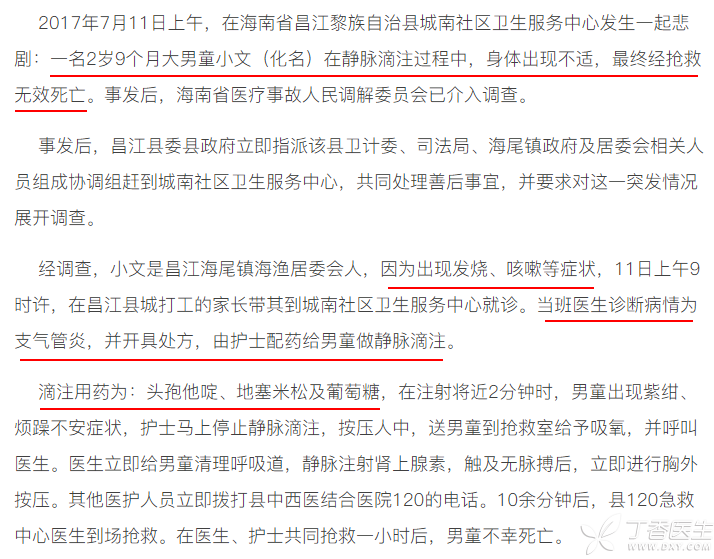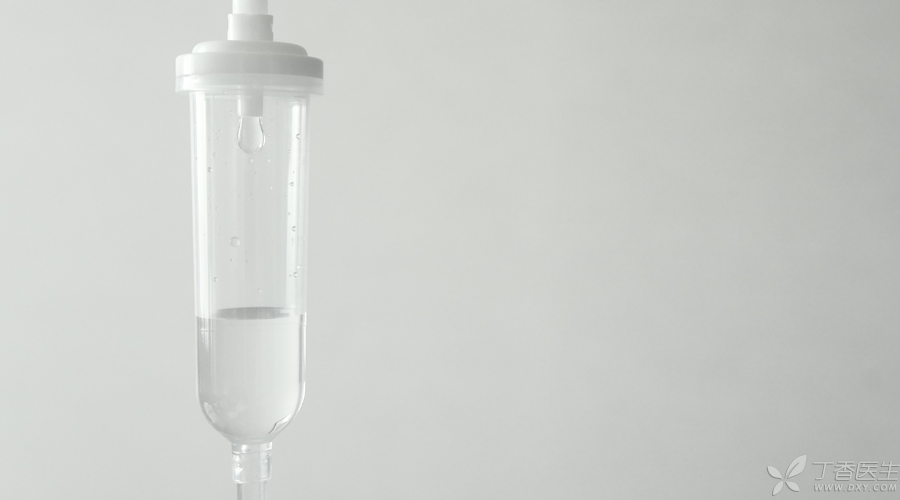
This matter should start with a news story.

Whether the child’s diagnosis in the incident is accurate or not is unknown.
However, as to why it is not recommended to use antibiotics as soon as possible, Dr. Clove specially invited Mei Erkang, a child pharmacist, today. He will tell us about the basic knowledge of related diseases and medication, hoping to help more people.
Bronchitis, do not have to use antibiotics

We often say that bronchitis is mostly acute, and many children will appear in the late stage of catching a cold.
The cause of acute bronchitis may be viral infection, mycoplasma pneumoniae or bacterial infection, or mixed infection.
Therefore, if bronchitis is caused by viral infection, antibiotics are not only ineffective, but also may cause imbalance of flora in the body. Abuse must be avoided. Antibiotics will only be used when bacterial infection is complicated. Again, ribavirin is not recommended for routine use.
If the child coughs badly, for example, it is serious enough to affect sleep, doctors may consider using some non-central inhibitory antitussive drugs, but it is still preferred to use phlegm-resolving and expectorant drugs.
Children with bronchitis should not use dexamethasone
Dexamethasone is a glucocorticoid drug with a wide range of applications, so it is common that it is not strictly administered according to indications clinically.
If glucocorticoids are used solely for the purpose of reducing fever, especially in viral infection diseases, it is really necessary to be very cautious or even unnecessary.
Long-term use of glucocorticoid may not only not cure children with bronchitis, but also induce or aggravate various infections such as bacteria, viruses and fungi.
Therefore, if the child’s bronchitis is caused by virus, oral administration or injection of dexamethasone is inappropriate.
Only cough, cold direct intravenous infusion also has the suspicion of abuse

1. Do not inject if you can take orally, and do not inject intravenously if you can inject
When taking drugs, we must first follow the principle of “no injection if you can take orally, no intravenous injection if you can inject intramuscularly” advocated by the World Health Organization.
Usually what only needs infusion?
On this issue, it is currently recognized at home and abroad that intravenous infusion is only required when children have dysphagia, severe absorption disorders (such as vomiting, severe diarrhea) and other critical conditions.
Perhaps, seeing the mother here is still very confused, how do I know if the baby needs infusion?
2. Common diseases that do not require infusion
At present, some provinces in China have clearly given common diseases that do not require infusion treatment in pediatric outpatient clinics:
- Upper respiratory tract infection: that is, common cold, especially within 3 days of the course of the disease, body temperature below 38 ℃, good spirit. Infantile diarrhea: diarrhea, especially mild dehydration, through oral rehydration. Bronchiolitis: especially mild wheezing children. Hand-foot-mouth disease or herpetic angina: especially not fever, good spirit.

3. Intravenous infusion is not only unnecessary, but also may affect health.
At present, there is no specific antiviral drug for the common cold. It is mainly based on symptomatic treatment to relieve the symptoms of the common cold. At the same time, attention should be paid to rest, appropriate water supplement, indoor air circulation and avoidance of secondary bacterial infection.
In fact, I also understand that many times mothers are worried and want their babies to get better early, but if we blindly inject intravenous fluid without any basis, it may affect our health.
In 2017, the State Administration of Food and Drug Administration issued:
Distribution of adverse drug reactions in children: injection accounted for 84.9% (63.1% of the overall population level), oral preparations accounted for 11.8%, and other preparations accounted for 2.6%.
The incidence of adverse reactions caused by infusion is significantly higher than that of oral administration and other routes of administration.
Stop taking drugs indiscriminately! Suit the remedy to the case is the absolute principle.

Of course, excessive use or even abuse of antibacterial drugs is a big mistake in the treatment of common cold in China.
There have been literature reports before:
62% of children with common cold received antibacterial drugs.
In fact, this kind of situation will occur not only because some hospitals are over-treated, but also because we lack certain common sense of medication.
Many mothers will go directly to the pharmacy to buy medicine for their children, but…
First of all, we may not know that pathogens causing respiratory tract inflammation can be divided into eight categories, and the drugs needed to deal with these eight categories of pathogens are different.
In other words, those who can kill bacteria cannot handle viruses. Can kill viruses, but can’t handle bacteria.
Secondly, many people think that antibacterial drugs are anti-inflammatory drugs. As long as it is inflammation, antibacterial drugs can be used to diminish inflammation.
The fact is that inflammation is not a specific disease, but a manifestation of many diseases. Antibiotics can only fight against some bacteria and cannot do anything about inflammation caused by viruses, fungi, etc.
Although after reading this article, many mothers may still have doubts, but if they know more every day, the baby’s health will be guaranteed more, the attitude of learning will be maintained, and the baby will be raised scientifically. Isn’t that quite good?
